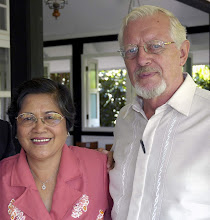The church is meant to be the expression of Christ’s life and power on earth. This can only take place as:
-
We move out of “comfy Christianity” into the daring adventure of following Jesus.
-
We replace our “come-structures” with “go-structures”
-
We recapture the “going” lifestyle
Comfy Christianity
Shane Claiborne writes: “Being a Christian
is about choosing Jesus and deciding to do something incredibly daring
with your life.”
In my former life as a pastor, I was a
dispenser of comfortable Christianity. I took on the job of creating a
“conducive environment” for worship. What this really meant was making a
worship event cushy enough that people would want to come and then come
back: comfortable seats, coffee, pleasing worship music, and a sermon
that holds attention. Unfortunately, regularly attending a comfortable
worship event has become the primary marker of what it means to be a
Christian today.
In fact, we often replace the miraculous
adventure of following Jesus with religious activity. Did I go to church
this week? Check it off the list. Did I read my Bible? Check it. Did I
pray? Check it. Done! I have completed my Christian activities and am,
therefore, a “good Christian.” Religion itself becomes an easy
replacement for a daring life lived in partnership with Jesus.
Ironically, Jesus drew a startling line in
the sand in response to someone who wanted to follow him: "Foxes have
holes and birds of the air have nests, but the Son of Man has no place
to lay his head (Matthew 18:20).”
Jesus was not a dispenser of comfortable Christianity. Quite the
opposite. He taught that followers would live a lifestyle of stepping
outside of comfort zones in order to join him in the adventure of
extending the life of the kingdom.
Replacing “Come-Structures” with “Go-Structures”
Part of our comfy Christianity has been to
focus most of our Christian activities within the four-walls where our
friends and other Christians hang out. The result is that we reach out
to others by inviting them to come join us where we are.
My fellow-blogger, Hamo, comments on this:
If Jesus were alive today and his mission was still to seek out and save the lost what might he do?
Would he hire a building, set up a sound system, develop a music team, drama team, and then do local letterbox drops advising people that they could come and be part of his church on Sunday?
Was it ever Jesus’ intention that non Christians should seek us and desire to attend our worship events? Or didn’t he say quite clearly that it was his calling, and now ours to seek out and save the lost; to go to their world and enculturate the gospel there. Little Bo Peep evangelism (leave ‘em alone and they’ll come home) is fast running out of steam…


